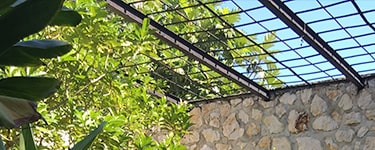Blog

Emily Sorman: A Life-changing Trip to Ethiopia
Emily Sorman is a unique young woman. One Nurse At a Time (ONAT) first met when she was an LPN whose work program had been discontinued. She had decided that was the perfect time to volunteer! So ONAT gave her a scholarship for a month in Peru volunteering in a children’s clinic. Emily returned to the United States, finished school and is now an RN. While looking for a permanent job, she has continued to volunteer – most recently in Ethiopia on a trip sponsored by Barco’s Nightingales Foundation.
When she first arrived, she was quite upset at what she was seeing in the mission’s system of attending patients. She brainstormed with ONAT on ideas for what she could do to not only directly care for the patients, but bring ideas to improving the system. She took those ideas and positively impacted the program and the lives of these people in need. She even bought shoes for a woman with an infected toe, which a doctor said would have to be amputated, but which Emily felt that with proper care could be saved. Pretty amazing!
In Emily’s words…
I was working with an organization that provides home visits for hospice patients with HIV and cancer. In total, they serve 25 patients. Unfortunately, I was not able to see all of them while I was there. I worked with three local nurses, as well as two missionary nurses who were spending a year there working with the program.
The best part of the trip to Ethiopia was seeing patients. Many live in one room with no running water and cook food over fire. This experience was really eye-opening for me. The patients were all so kind despite their difficult circumstances. Every patient I saw was HIV positive, and most of their children were, too. Hearing their stories and being able to provide them care was extremely rewarding.
Sadly, most all of the patients were hungry and did not have enough money to buy food. They are provided food once a month, but it is not enough to feed their families. Another volunteer and I bought food for as many patients as we could, but knowing that once we were gone they would go hungry again, was heart breaking.
I found that there were very few medical records for the patients. The nurses communicated the patient history verbally, and documentation was incomplete. While I was there, I was able to write sample care plans, and in collaboration with the missionary nurses, we taught the local nurses how to write their own care plans and use them to improve the health of the patients. I thought that I would be just doing hands-on care with the patients, but I was actually able to use my nursing knowledge to improve their health delivery system, which will hopefully improve the outcomes of all of their patients in the future.
I never considered myself a materialistic person, and always thought I could be happy with very little. Once I was faced with hardly ever having running water or the food I am used to having, I realized how fortunate I am to have these simple luxuries at home. Many of our patients have to walk long distances to fill up heavy jugs with water to bring back to their homes. This is a way of life for them, and they never complain. I feel very humbled to have met such wonderful people.
Ethiopians are very warm and like to greet each other with hugs and kisses. People talk to strangers as if they are friends. Many people yelled “forengi” at me walking in the street, which means foreigner. It is not meant to be offensive; they are usually fascinated with seeing someone from an outside place.
There are a few experiences that will always be etched on my memory. One of our patients had a two month old baby who was malnourished. The mother’s breast milk had dried up, and she had to use formula which they could not afford. Some of the volunteers were able to buy formula, but the baby’s respiratory status was compromised. She seemed to us to be in respiratory distress. We finally got her to a doctor, who said she simply had small nasal passages and that she would grow out of it. In the United States, she would at least have some sort of diagnostic test performed to determine the cause, but the care provided in Ethiopia is not what we are used to.
Another time I visited an elderly woman who was not even our patient. She asked us for food as we were walking by, so we went and bought her food and hygiene supplies. She invited us in her home. We made her lunch and drank coffee together, which is an important tradition for Ethiopians. She was alone and had very few of her basic needs yet, she was cheerful. She sang us songs and thanked God for everything she had.
This mission has made me more culturally aware, more grateful, more patient, and all-around a better nurse. Now, I know that when I see a system that is not working, I can use my skills and knowledge to help change it.
One Nurse at a Time supported me in both my mission to Peru last year and to Ethiopia this year. Without One Nurse – and the support Barco’s Nightingales Foundation provides ONAT, I probably wouldn’t have made the leap to do international volunteer nursing. They have not only helped me financially, but also gave me advice on how to help patients while I was there. Being able to talk to someone with so much experience in this field is invaluable.
My goal is to do one trip every year. I believe I’ve been able to touch many lives already, and I am hopeful I can continue to do so in the future.
